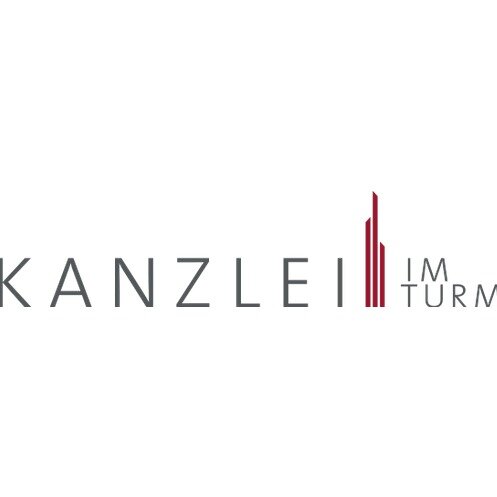Best Trusts Lawyers in Winterthur
Share your needs with us, get contacted by law firms.
Free. Takes 2 min.
List of the best lawyers in Winterthur, Switzerland
About Trusts Law in Winterthur, Switzerland
Trusts are not a native legal concept under Swiss law, including in Winterthur. However, Switzerland is signatory to The Hague Convention on the Law Applicable to Trusts and on their Recognition, effective since 2007. This means that while Swiss local laws do not allow the creation of trusts according to Swiss legal frameworks, they do recognize trusts established under foreign laws. Trusts are often used in estate planning, asset protection, and family wealth management by Swiss residents utilizing foreign trust laws.
Why You May Need a Lawyer
There are various circumstances where individuals might require legal assistance with trusts. These include estate planning and ensuring that wealth is distributed according to the trustor's wishes after their demise, protecting assets from creditors, managing complex family wealth structures, and complying with tax regulations. Additionally, modifying or disputing the terms of a trust and ensuring compliance with Swiss recognition rules can necessitate expert legal guidance.
Local Laws Overview
While Switzerland recognizes trusts, specific local regulations affect how they are administrated within the country. Key considerations include complying with Swiss tax regulations, as beneficiaries might be subject to tax on their distributions. Swiss law also imposes certain transparency requirements which include the registration of controllers (similar to trustees) of trusts. Swiss residents participating in trusts must ensure thorough documentation and compliance with civil law obligations pertaining to estate management.
Frequently Asked Questions
What is the role of a Swiss trustee if Swiss law does not recognize trusts?
In Winterthur, as in the rest of Switzerland, a Swiss individual can serve in an administrative role but not as a trustee per se. This might involve overseeing the trust from a compliance perspective without formal trustee powers.
Can I set up a trust in Winterthur?
Swiss law does not accommodate the creation of domestic trusts, but it does recognize trusts formed under foreign jurisdictions. Residents in Winterthur would need to create the trust under another jurisdiction that allows trusts.
Are my family members automatically able to access my trust upon my death?
The terms of a foreign trust largely dictate this. However, these terms must be explicit regarding the distribution to adhere to legal standards recognized by Swiss authorities.
What tax implications are there for trusts in Switzerland?
Trusts recognizable in Switzerland must adhere to tax obligations. This could involve paying income and wealth taxes, and meticulous records must be maintained for beneficiaries upon distributions.
What happens if there is a dispute regarding a trust?
Disputes are typically resolved under the jurisdiction governing the trust, but Swiss courts might get involved when recognizing foreign judgments and ensuring they comply with Swiss standards.
Can foreign trustees manage trusts involving Swiss assets?
Yes, but it is advisable to have legal counsel in both jurisdictions to navigate the complexity of cross-border asset management effectively.
How does one ensure compliance with Swiss recognition of a foreign trust?
Ensuring compliance involves accurate documentation, proper registration of any controllers, and adhering to tax filings as required by Swiss law.
Are there any privacy concerns with Swiss trust recognition?
While Switzerland values privacy, increasing international transparency norms require certain disclosures to comply with oversight regulations and prevent money laundering.
Is it possible to make changes to the terms of a recognized trust?
The ability to modify a trust depends on the terms set out at its establishment under the governing jurisdiction. Legal advice might be needed to make any amendments recognizable in Switzerland.
Who can provide more information about trusts in Winterthur?
In-depth advice is best sought from legal professionals who specialize in Swiss recognition of foreign trusts and estate planning.
Additional Resources
For further information on trusts in Winterthur, consider consulting the Swiss Financial Market Supervisory Authority (FINMA) for regulatory insights, or local legal professionals like law firms specialized in international estate planning. Consulting the official Swiss government website for updates on regulations affecting trusts can also be beneficial.
Next Steps
If you need legal assistance with trusts in Winterthur, it is advisable to contact a lawyer specializing in international estate planning and trusts. They will provide guidance on how to implement, administer, or resolve issues with trusts recognized under Swiss law. Prepare by gathering all relevant documents and details about the trust, such as governing jurisdiction and terms, to ensure efficient assistance.
Lawzana helps you find the best lawyers and law firms in Winterthur through a curated and pre-screened list of qualified legal professionals. Our platform offers rankings and detailed profiles of attorneys and law firms, allowing you to compare based on practice areas, including Trusts, experience, and client feedback.
Each profile includes a description of the firm's areas of practice, client reviews, team members and partners, year of establishment, spoken languages, office locations, contact information, social media presence, and any published articles or resources. Most firms on our platform speak English and are experienced in both local and international legal matters.
Get a quote from top-rated law firms in Winterthur, Switzerland — quickly, securely, and without unnecessary hassle.
Disclaimer:
The information provided on this page is for general informational purposes only and does not constitute legal advice. While we strive to ensure the accuracy and relevance of the content, legal information may change over time, and interpretations of the law can vary. You should always consult with a qualified legal professional for advice specific to your situation.
We disclaim all liability for actions taken or not taken based on the content of this page. If you believe any information is incorrect or outdated, please contact us, and we will review and update it where appropriate.













